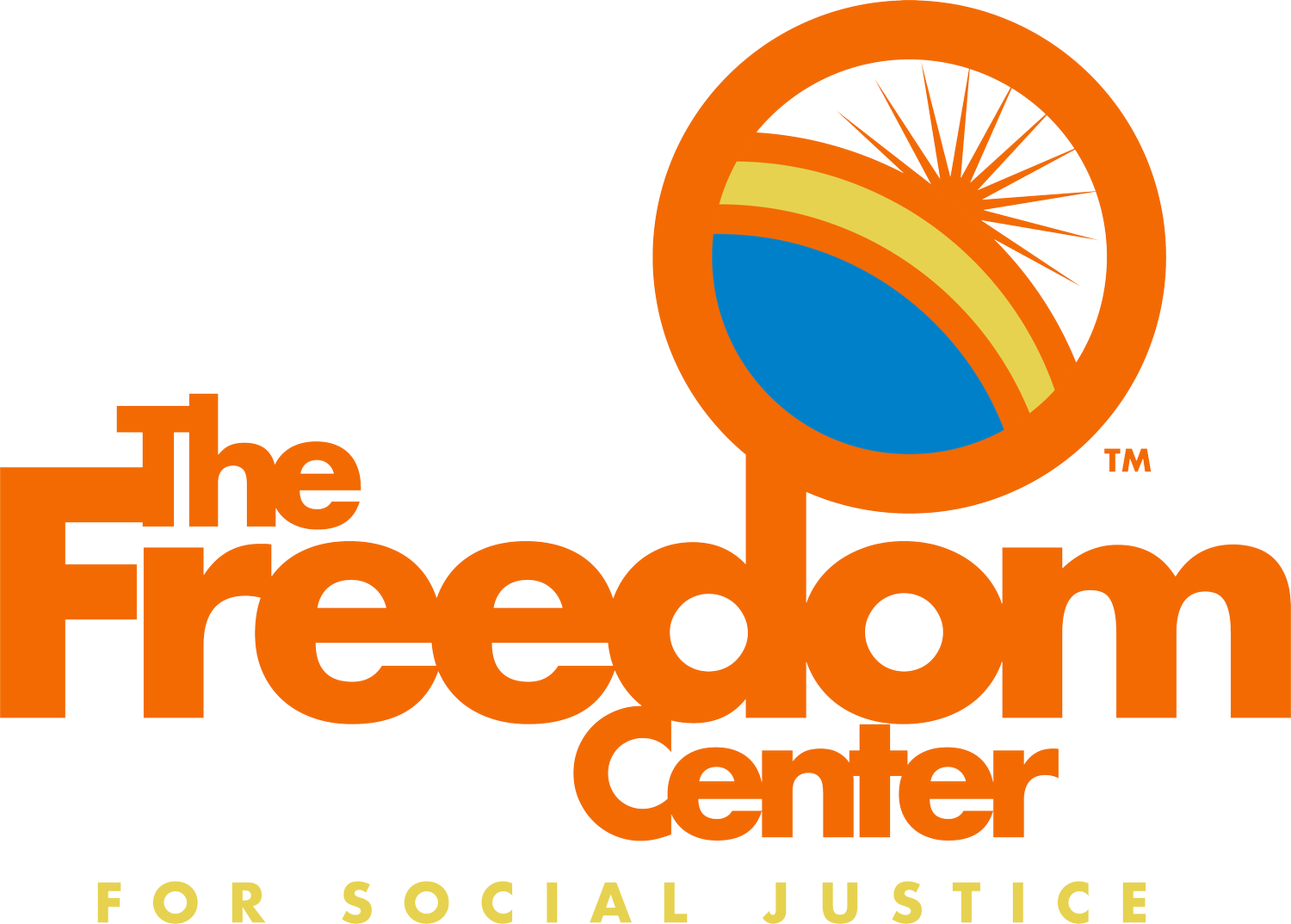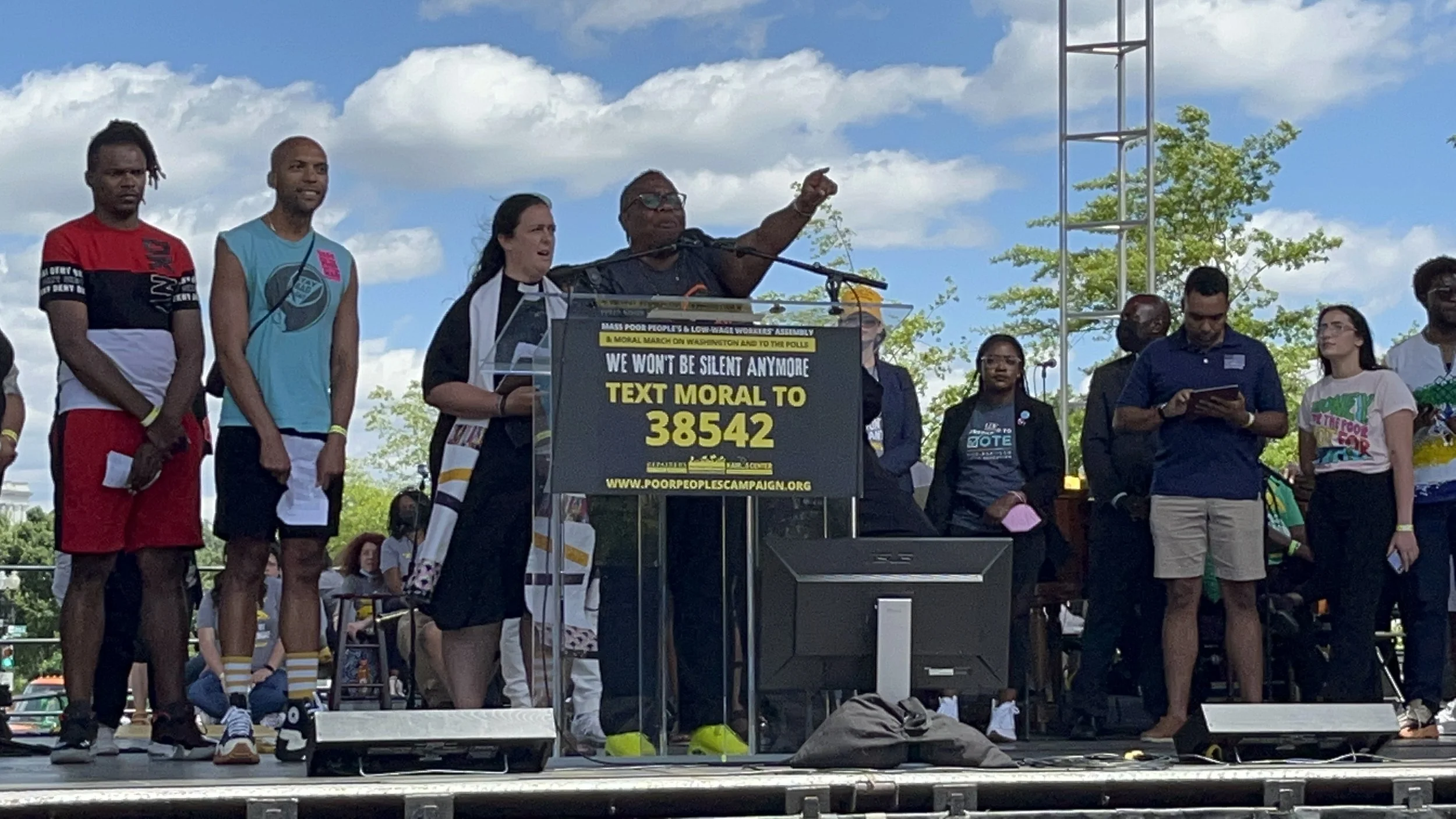The Freedom Center for Social Justice Marches on Washington
The 2022 Poor People’s Campaign March
On Saturday, June 18th, 2022, low-income, poor and unhoused people, The Freedom Center for Social Justice, our own ROP AWAKE (Allturnatives) Drumline and many other organizations took to the streets of Washington DC. We revived Dr. King’s dream to fight for equality, economic justice and the very fundamental fiber of our nation, our democracy.
A Brief History Lesson
In 1967, Dr. Martin Luther King Jr. announced the Poor People’s Campaign at a staff retreat of the Southern Christian Leadership Conference (SCLC) . King had originally planned for a group of 2000 poor people to march throughout the entire east coast to encourage a “middle ground between riots on the one hand and timid supplications for justice on the other. ” They ventured to meet with government officials to demand unemployment insurance, equal employment, and a fair minimum wage. King also imagined continuing education and training designed to help individuals escape the psychological stigma and damage associated with poverty (King, 29 November 1967).
A Call For an End to Poverty
The Freedom Center for Social Justice and countless like-minded organizations were led by the co-chairs of the current Poor People’s Campaign, Rev. William J. Barber II and Rev. Liz Theoharis. In his address, Barber emphatically encouraged Congress to pass voting rights protections, immigration reforms, reproductive rights, labor rights, climate change, gun violence, housing rights, LGBTQIA+ rights and specifically encouraged congress to pass the “Build Back Better Act” on 12/31/2021. His emphatic, booming voice rang through the loudspeakers. Barber’s dedication was sincere and palpable; it was a call to action that heralded the march with power and compassion.
The Five Interlocking Evils
The speakers called upon what many of them referred to as the “five interlocking evils” in America; “systemic racism, poverty, ecological devastation, the war economy and our distorted moral narrative.” These sociological and political devices work like interlocking gears to systematically and generationally keep people below the poverty line. This was reiterated best by one of the greatest minds and activists of our generation, Dr. Cornel West. Though he openly admonished those who refused to act in his address, overall his words for the audience were hopeful. He reiterated one of his most memorable assertions, “We [the black community] are a great people precisely because in the face of 400 years of chronic hatred we keep dishing out these love warriors[...]” and went on to encourage that this “spiritual maturity” “spill over onto” all communities in need.
Unity In the Face Of Adversity
More than 20 interfaith religious clergy, human rights organizations and impassioned workers spoke their truths. Alongside the Freedom Center For Social Justice, the Presbyterian Church (USA), the Episcopal Church, Evangelical Lutheran Church in America, The American Service Friends Committee (an arm of the Quaker church), the Catholic Sisters of Mercy and many others both spoke and supported the march. Christian, Indigenous, Hindu, Muslim, Afro-Caribbean and Jewish traditions all stood, side by side supporting one another and the cause as a whole.
Sheila Katz, head of the National Council of Jewish Women offered this: “We gather on these streets in the spirit of the Prophet Amos who declared: ‘Hate evil, love good and establish justice in the public square’”. This encapsulates the moving part of the march–watching so many seemingly divergent faiths and lives come together in unity. Our steps and actions were much like the harmonious rhythms of our own ROP AWAKE (Allturnatives) drumline.
Support The Freedom Center For Social Justice
The Freedom Center for Social Justice is a culture-shifting organization committed to the growth, safety and empowerment of marginalized populations. Our vision is a world where equal protections and opportunities exist for all through advocacy, community education, and faith-based organizing. We are committed to providing support that opens doors, raises awareness, and creates life-giving change.


